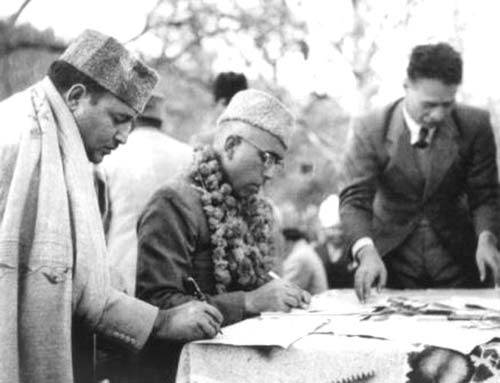A study of the text of Article 370 reveals six special provisions for Jammu and Kashmir. First, it exempted the state from the provisions of the constitution of India providing for the governance of the states.
Second, Parliaments legislative power over the state was restricted to three subjects only. The president could extend it to other provisions of the constitution to provide a constitutional framework if they are related to the matters specified in the instrument of Accession. For all this, only “consultation” with the state government was required since the state had already accepted them in 1947 by the instrument of Accession.
Third, the prior concurrence of the state government was required if other constitutional provisions are to be extended to the state of Jammu and Kashmir.
The fourth feature is that even that concurrence alone did not do, it had to be ratified by the state’s constituent assembly.
The fifth is that the state government’s authority to give the “concurrence” lasts till the constituent assembly is convened. Once the constituent assembly met, the state government cannot give its concurrence.
The sixth special feature is that Article 370(3) empowers the president of India to make an order abrogating or amending it. But, the recommendation of the state’s constituent assembly shall be necessary before the president issues such a notification.
In exercise of the powers conferred by clause (1) of article 370 of the Constitution, the President, with the concurrence of the Government of the State of Jammu and Kashmir made the Constitution (Application to Jammu and Kashmir) Order, 1954 which came into force on 14 May 1954.
From May, 1954, The Constitution (Application to J&K) Amendment Order 1986, C.O. 129 dated July 30, 1986, the story of passing 42 such orders (amendments) reveal the immenseness and pace of erosion of the Article 370. The fact is that these orders have been made and carved in such a way that none of them can be objected to.
“The state has no powers to legally compel the parliament to recall the laws already extended including Constitutional Application Order of May, 1954 and in view of the fact that state unilaterally cannot raise any dispute with the centre regarding all the laws that have been enforced but will have to litigate the matter in the supreme court of India thus the entire talk about autonomy and self rule of the state is share tosh,” advocate Tassaduq Hussain said.
Even National Conference is of the view that New Delhi has been very eagerly infiltrating in the legislation of laws for the state hence damaging its autonomy.
“……in the eagerness to create an image of cementing closer relations, what followed 1954 is a series of Constitutional (Application to J&K) Orders till now which were not conceived at any point of time either in 1950 or in 1952 or even later in May 1954,” reads the autonomy report of National Conference, tabled in the state legislature on April 16, 1999.
“Among the changes brought about the most important were in restricting the powers of legislature of the state, extension of powers of Parliament of India, provisions relating to emergency. All India services, superintendence, direction and control of elections of the state legislature and several matters,” adds the report adopted by the state assembly on June 26, 2000.
Despite Maharaja Hari Singh’s standstill agreement with Pakistan, the Jammu & Kashmir state joined Indian union on October 26, 1947 (date is being disputed by some Western researchers) in wake of tribal raids. This was one of the last princely states to join the union.
By signing the Instrument of Accession, the state surrendered only defence, communication and foreign affairs to Delhi. Instrument of accession, however, became the basis for states’ 6-member delegation to join India’s Constituent Assembly.
Article 306 (A), the “original and un-amended form of Article 370”, was drafted and included in the constitution which was adopted on January 26, 1950. A subsequent President’s Constitutional Application (to J&K) order, 1950 elaborated the centre-state relations on the basis of Instrument of Accession, Article 1 and Article 370.
Under this special dispensation, J&K was entitled to its own constitution, flag, and nomenclature and could legislate under State list, Concurrent List. Parliament’s legislative powers were limited to the subjects of accession and the rest of the Union List was also lying with the state besides, the residuary powers.

















why Omar is crying, this article 370 was finished by his grand father sheikh abdullah when he became chief Minister instead of prime Minister
Wt is there in Article 370; it is actually a bridge through which Endia travelled and established itself here, moreso, we actually misunderstand and relate it with State Subject Law!
Article 370 should be scrapped at the earliest so that non Kashmiris get an equal status in J&K as Kashmiris. This will bring about a greater integration of J&K with India and will end the terror problem forever.